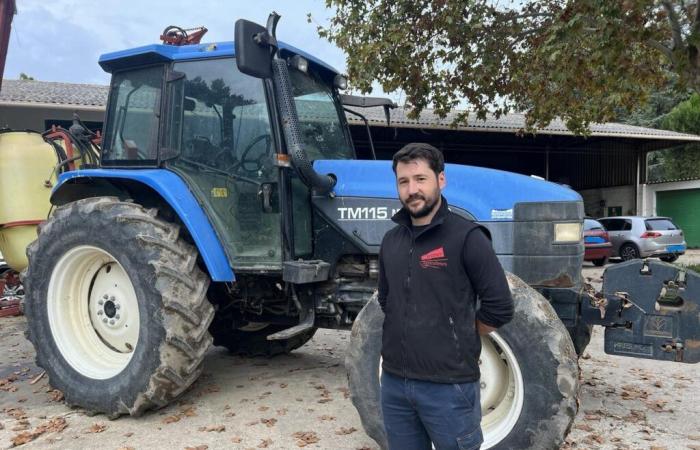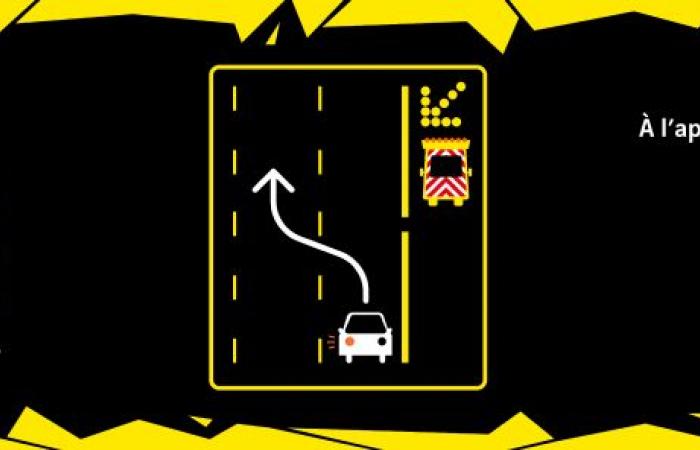Discontent is growing within the Gard peasantry. Meeting with Romain Angelras, president of the Young Farmers of Gard.
Like David Sève, president of the FDSEA Gard, Romain Angelras lets his indignation be expressed. At 36 years old, working on the family farm with his brother, the winegrower strives in the interest of the sector. It was at 21 that he fell into trouble, don't talk to him about uprooting vines for young people, “It’s a profession of passion, what a heartbreak to tell a wine grower to take 4000 euros and stop”. The farmer will rather prefer a “temporary uprooting time, in order to freeze its rights and replant seven years later”. A fortiori on the Gard lands, “it is not on the pebbles of the Costières vineyards that you will grow salads”, he comments sarcastically. The climate is tense, “many Gard farmers are in disarray”, sighs Romain Angelras who says he is operating in the negative on his accounts. To be able to make a living from the profession, you would need a turnover of around “6000 euros per hectare”, but those observed in Gard “ tend to be around 4000, even 3500″ for the most vulnerable. A crisis all the more acute as agriculture represents a pillar of the Gard economy, with its 4,200 farms.
Climatic hazards, mildew, distributor margins…
Recently, an operation by the JA and the FDSEA took place in a Lidl store in Bagnols-sur-Cèze. “A Côtes-du-Rhône bottle was sold for 1.39 with the promotion system, it’s intolerable”, protests Romain Angelras who sees it as a betrayal, given the cost of producing a bottle. Added to this are climatic hazards and dreaded fungal diseases such as the fungus Downy Mildew, which destroys crops. “So many molecules have been taken away from us that we no longer have anything effective to treat,” plagues the wine grower who suffers the cost of treatment in addition to poor harvests. Gard production usually amounts to around 3.2 million hectoliters, the latest figures show only 2.5 million between March and September 2024. “ In our territory of Costières, which extends to Aigues-Mortes, around Remoulins and towards Bagnols, we are suffering the biggest loss, around 35% drop in harvest, or even 80% for organic. alarms the winegrower. Same concerns from the first organic cellar in France Héraclès (our article here).
“We must invest in Research”
Last January, “we didn’t imagine that we were going to have a year even more catastrophic than the previous one”deplores the winegrower, recalling that many farmers have “sacrificed their family life to work nights”. Concerning the crisis fund released by the public authorities following the revolt, ranging from 3,000 to 10,000 euros depending on the farms, “the Gard prefecture was efficient on this point and made it possible to release the funds quickly”recognizes Romain Angelras. The fact remains that other measures relating to unfair competition have not been implemented. For the winegrower, it is suitable “to invest in Research” concerning sustainable agriculture without sacrificing its activity. Also to review the insurance and agricultural disaster system, considered too rigid and whose calculations turn out to be not adapted to the realities on the ground.
A call to mobilize on November 18
Nationally, a notice was submitted as part of a call to mobilize on November 18. “We have a word from the FNSEA and the JA to be ready”confides the winegrower. A future road blockage? “I fear one thing regarding the anger… The farmers have nothing left to lose, if they end up in prison, that’s not the goal”judge Romain Angelras. One thing is certain, between now and November 18, other striking actions are likely to emerge in the Gard… Video interview with Romain Angelras below:







